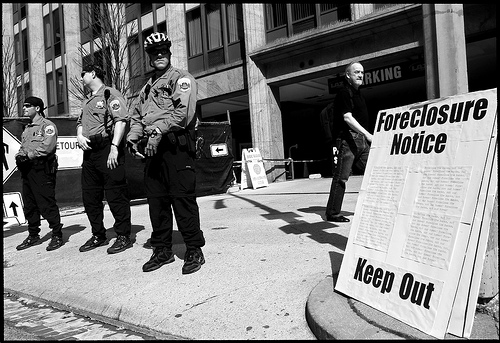Real estate brokers in California usually know the importance of a written agreement with their clients. First off, the statute of frauds requires there be a written agreement promising to pay a commission in order for them to be entitled to get paid. The agreement has to be signed by the client, unless it is ratified by the client. But there are other details to be included in an agreement between a broker and their principal, and to avoid ambiguity they should consult with an experienced Sacramento and El Dorado real estate lawyer. One such ambiguity recently landed a broker in court.
 In Duncan v McCaffrey Group, the defendants were licensed California real estate brokers as well as developers. The developer-brokers marketed a project as a custom home development, in which only large custom homes would be build. The plaintiffs were a number of people and trusts who had bought lots in the development. They claim that they paid a premium price because it was to be an exclusive custom home development. However, they also claim that the broker at all times intended to build small tract homes in the subdivision (the developer actually amended the CC&Rs after they bought the lots to allow for smaller houses). As a result of building the tract homes, the values of the plaintiffs’ lots plummeted.
In Duncan v McCaffrey Group, the defendants were licensed California real estate brokers as well as developers. The developer-brokers marketed a project as a custom home development, in which only large custom homes would be build. The plaintiffs were a number of people and trusts who had bought lots in the development. They claim that they paid a premium price because it was to be an exclusive custom home development. However, they also claim that the broker at all times intended to build small tract homes in the subdivision (the developer actually amended the CC&Rs after they bought the lots to allow for smaller houses). As a result of building the tract homes, the values of the plaintiffs’ lots plummeted.
Critical Language




 Title companies often prepare complicated documents, such as deeds of trust, grant deeds, an promissory notes to accommodate closing escrows, which results in their fees. There can be mistakes that vary in seriousness, and sometimes the only solution is to have the Court order a document re-formed. A recent decision points out the problems that can arise when a property was sold for $7.2 million dollars, and the seller did not have an
Title companies often prepare complicated documents, such as deeds of trust, grant deeds, an promissory notes to accommodate closing escrows, which results in their fees. There can be mistakes that vary in seriousness, and sometimes the only solution is to have the Court order a document re-formed. A recent decision points out the problems that can arise when a property was sold for $7.2 million dollars, and the seller did not have an  It was in
It was in  The question arose because of a statute of limitations – the deadline a party has to file a lawsuit before their rights are timed out. In
The question arose because of a statute of limitations – the deadline a party has to file a lawsuit before their rights are timed out. In A. Is the lender likely to conduct a trustee’s sale?
A. Is the lender likely to conduct a trustee’s sale?  In
In In
In 
 In
In  Two pedestrians were stuck by a car while crossing the street in Los Altos. They suffered serious injuries, and in a lawsuit named the city claiming this was a dangerous intersection. The city cross-sued the homeowner, charging that a large tree was a hazard and blocked visibility. The tree was not on the homeowner’s property, but adjacent to it. The owner never trimmed the trees, but PG&E did because there were power lines running through it- PG&E told the owner not to touch it. Now the owner needs to be worried about
Two pedestrians were stuck by a car while crossing the street in Los Altos. They suffered serious injuries, and in a lawsuit named the city claiming this was a dangerous intersection. The city cross-sued the homeowner, charging that a large tree was a hazard and blocked visibility. The tree was not on the homeowner’s property, but adjacent to it. The owner never trimmed the trees, but PG&E did because there were power lines running through it- PG&E told the owner not to touch it. Now the owner needs to be worried about